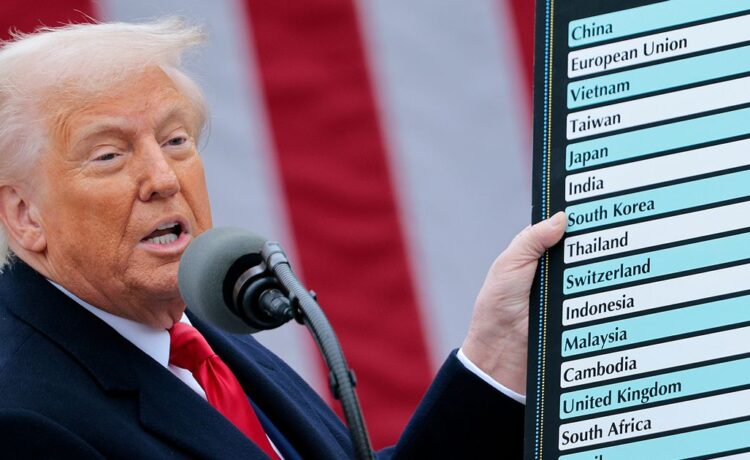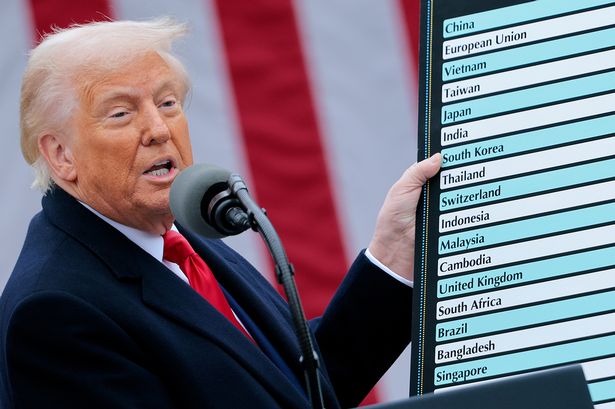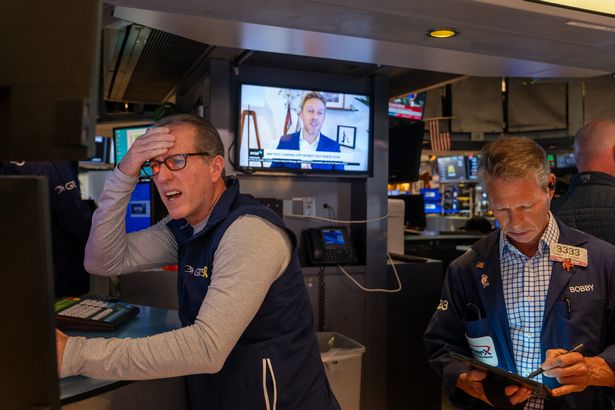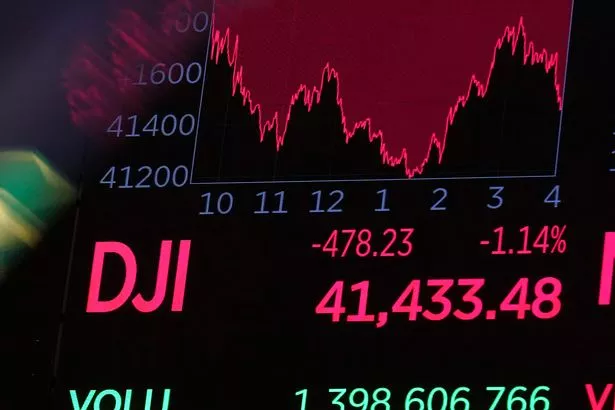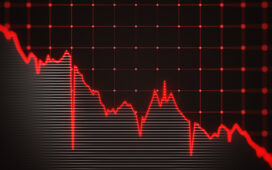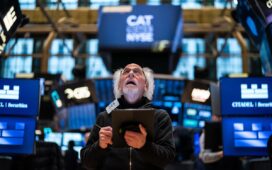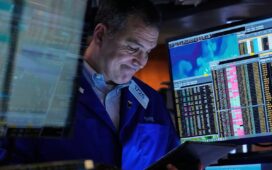Stock markets plunged again at the start of the new week as US President Donald Trump refused to back down over the biggest wave of import tariffs since the 1930s
More than £100billion was wiped off the FTSE 100 in the space of minutes as Wall Street braces itself for a possible repeat of 1987’s “Black Monday”. Donald Trump’s ongoing tariff war – and signs that the US President was unwilling to back down – led to stock markets plunging again.
In London, the FTSE 100 slumped nearly 5% within the first 10 minutes of opening. It followed sharp falls in financial markets in Asia. However, all eyes are on the US when its markets open given concerns that President’s Trump’s tariffs are hammering some of its biggest companies and stocking fears of a recession in the world’s biggest economy. It comes as more than £5trillion was wiped off US markets last week.
Some analysts fear a repeat of ‘Black Monday’, when a slump in US markets in mid-October led to heavy losses worldwide. Jim Cramer, a host on CNBC and a market commentator, said: “If the President doesn’t try to reach out and reward these countries and companies that play by the rules, then the 1987 scenario… the one where we went down three days and then down 22% on Monday, has the most cogency.”
Even supporters of the White House cast doubt on its policies, with billionaire investor Bill Ackman warning on social media site X that President Trump’s tariffs risk plunging the US into a “self induced, economic nuclear winter.” He also slammed commerce secretary Howard Lutnick as being “indifferent to the stock market and economy crashing”. Billionaire hedge fund investor Stanley Druckenmiller also hit out at President Trump’s trade policy, writing on X: “I do not support tariffs exceeding 10%.”
Monday morning’s fresh shares carnage knocked another £1.8trillion off global markets – even before the start of trading in the US.
President Trump was sticking to his guns over the weekend, insisting the stock market turmoil would pass. Asked about the rapid falls, he claimed “sometimes you have to take medicine to fix something.” Financial markets have ramped-up the chances of interest rates cuts in the US if the economy takes a turn for the worse.
The carnage came as Trump told reporters he would not do a deal with China until the US trade deficit was sorted out. Beijing declared the markets had spoken on their retaliation plans. Investors had thought the loss of trillions of dollars in wealth and the likely body blow to the economy would make Trump reconsider his plans.
Joseph Hill, senior investment analyst at Hargreaves Lansdown, said: “It’s been a whirlwind period for markets, with investors hanging on Trump’s every word. The decision by the US administration to impose widespread tariffs and duties on trading partners around the world brings a screeching halt to decades of globalisation.”
Richard Hunter, head of markets at Interactive Investor, added: “China is clearly in the mood for the fight, and with the world’s two largest economies at loggerheads, the result has been ugly for investors. Retaliatory tariffs announced on Friday by China sent markets into another tailspin, while comments from President Trump over the weekend will do little to assuage the situation, with US futures already pointing to another difficult trading session to come.”
Speaking on Air Force One on Sunday night, Mr Trump suggested he wasn’t concerned about the stock market losses, which have had a knock-on impact to those with a pension pot and other small investors. He said: “I don’t want anything to go down. But sometimes you have to take medicine to fix something.”
The fall in Asian markets included a 13.7% dive in Hong Kong’s Hang Seng index, which experts said was worsened by it being closed on Friday. “Today is one of those days that will go down in history,” said Russ Mould, investment director at AJ Bell. He added: “This market sell-off feels brutal because it is relentless. Often, we see one or two bad days then a rebound. We’re now on day three and the sell-off is intensifying, not dying down. “Fundamentally, investors are worried about a big hit to corporate earnings and a massive slowdown in economic growth. The potential end to globalisation throws up more questions than answers and that uncertainty is causing havoc on the markets.”

